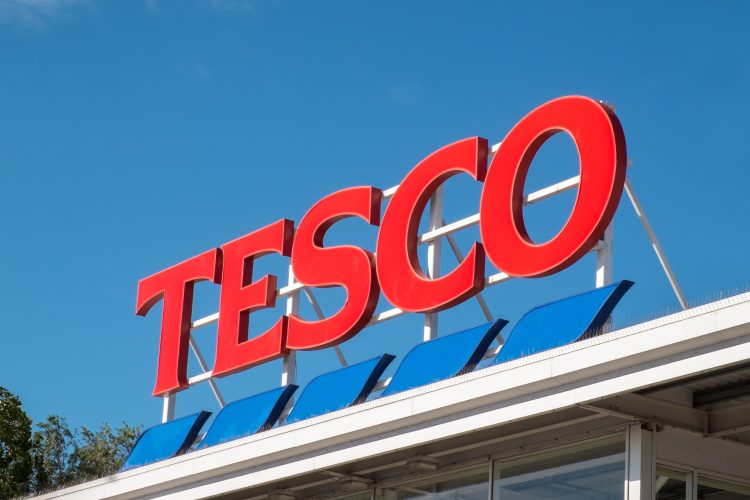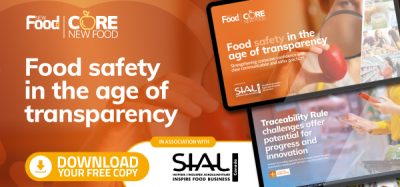Tesco commits to ensuring decapod crustacean welfare
- Like
- Digg
- Del
- Tumblr
- VKontakte
- Buffer
- Love This
- Odnoklassniki
- Meneame
- Blogger
- Amazon
- Yahoo Mail
- Gmail
- AOL
- Newsvine
- HackerNews
- Evernote
- MySpace
- Mail.ru
- Viadeo
- Line
- Comments
- Yummly
- SMS
- Viber
- Telegram
- Subscribe
- Skype
- Facebook Messenger
- Kakao
- LiveJournal
- Yammer
- Edgar
- Fintel
- Mix
- Instapaper
- Copy Link
Posted: 20 August 2024 | Leah Hockley | No comments yet
Tesco has made a public commitment to ensuring high welfare throughout the entire lifecycle of farmed decapod crustaceans in their supply chain, from farming to slaughter.


UK-based retailer Tesco has announced the publication of its comprehensive decapod crustacean welfare policy.
The public commitment to ensuring high welfare throughout the entire lifecycle of farmed decapod crustaceans in their supply chain, from farming to slaughter, is an important marker of progress in recognising the sentience of these animals. Tesco’s strong policy, created with support from the Aquatic Life Institute, reflects the increasing consumer demand for significant welfare considerations and commitments, and will likely inspire other retailers to follow their lead.
“Tesco is committed to continuous improvement in animal welfare within the markets and supply chains that we operate in. As well as our market leading ‘Tesco Welfare Approved’ audit programme, we wanted to go further in stipulating our minimum welfare requirements for farmed decapods. It is our hope that, in doing so, we can play our part in the continued improvement and development of these crucial supply chains. We couldn’t have achieved this without the continued support from partners such as Aquatic Life Institute amongst others and our key supplier partners,” said Ben Lambden, Sustainable Fisheries & Aquaculture Manager at Tesco.
Deadlines will vary for each target, and specific improvements include:
-
Tesco will not sell any live decapod crustaceans in stores and online
-
By 2026, 100% of the farmed Penaeus vannamei shrimp will be electrically stunned. Tesco affirms that it is exploring the practicalities of implementing this across P. Monodon supply chains with suppliers
-
100% of the suppliers will comply with recognised farm assurance schemes (certifiers), such as ASC, Global GAP or BAP 4
-
100% of the suppliers will achieve a Forage Fish/Oil Dependency Ratio of <1 by 2030
-
100% of shrimp broodstock used to produce the post-larvae (PL) for Tesco will be ablation free by 2026 (Penaeus Vannamei) or 2027 (Penaeus Monodon).
Tesco has also received support and advice from other organisations in the creation of this policy. Aquatic Life Institute was able to support by advising Tesco on aquatic animal welfare, sharing science-based resources to support their decision-making progress and providing feedback to policy draft.
This work is part of Aquatic Life Institute’s Corporate Initiative, launched in 2023, which aims to assist large-scale buyers in integrating animal welfare considerations into their procurement practices. Previous similar policies from Waitrose and Marks & Spencer reflect the trend to gradually eliminate cruel practices from corporate supply chains while aligning business strategies with animal welfare principles. In working with companies like Tesco, Aquatic Life Institute aims to encourage comprehensive policies that include animal welfare as they can help businesses overall – by attracting and retaining customers, building brand loyalty, reducing risks and setting companies apart from other competitors – on top of the ethical considerations.
“Tesco’s public commitment to ensuring high welfare throughout the lifecycle (farming to slaughter) of farmed decapod crustaceans in their supply chain is a bold and significant step towards recognising the sentience of these animals,” said Sophika Kostyniuk, Managing Director of Aquatic Life Institute. “This policy will no doubt ignite a positive ripple effect across the retail world, and we applaud Tesco’s leadership on this matter.”
While the market for decapod crustaceans grows, as does the public concern surrounding methods used in farming, transport and slaughter. This concern has only increased with recent evidence that proves decapod crustaceans likely have capacity to feel pain and have complex cognitive capacity. This, in combination with the 2022 UK law that recognised decapod crustaceans as sentient beings, has established a need for higher industry welfare standards.
Aquatic Life Institute is confident that Tesco’s commitment to welfare will pave the way for more retailers to follow in their steps to meet the growing demand from consumers for comprehensive welfare policies.








